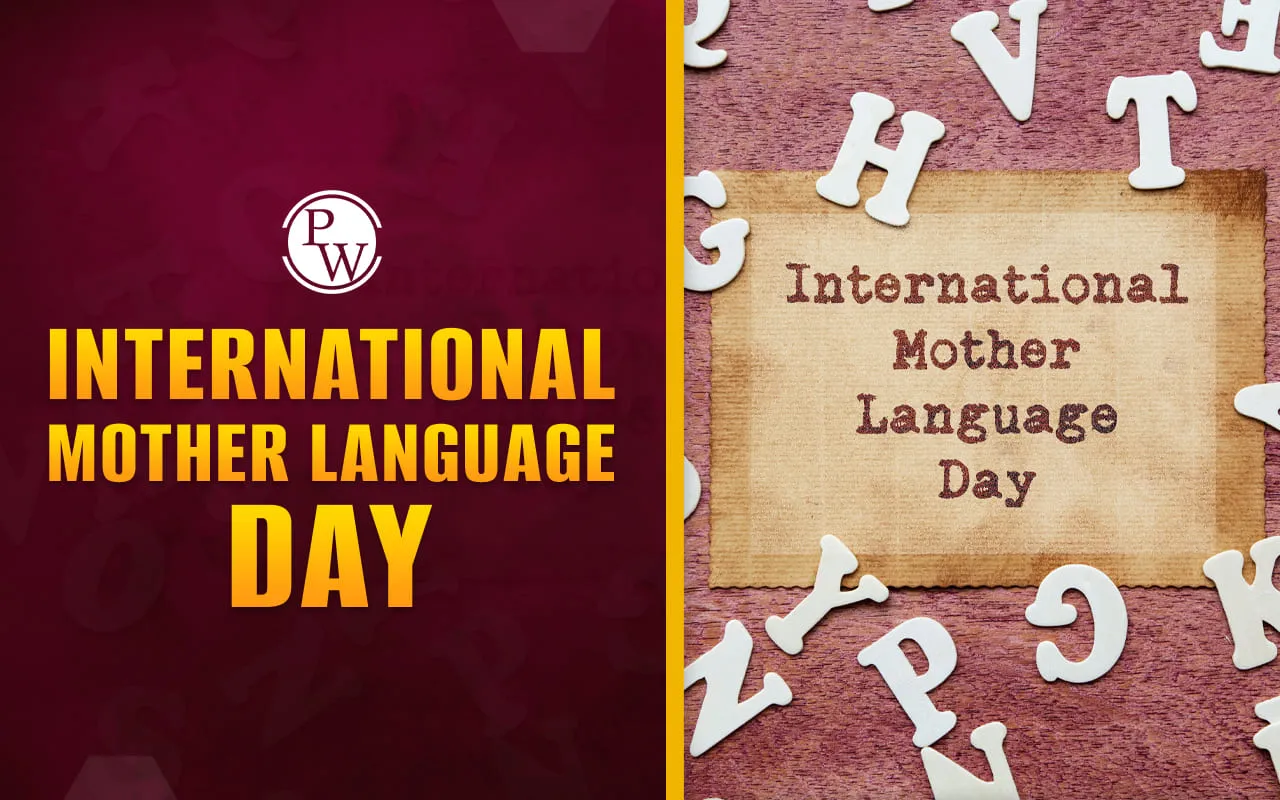
International Mother Language Day 2025 was celebrated on February 21 to promote linguistic and cultural diversity worldwide. This annual event, recognised by UNESCO, highlights the importance of preserving mother languages and ensuring multilingual education. International Mother Language Day 2025 marks the silver jubilee celebration of this day.
Every year, International Mother Language Day is celebrated on February 21 to encourage individuals and governments to protect endangered languages and respect linguistic rights. The 2025 celebration of International Mother Language Day will include discussions, educational programs, and cultural activities worldwide.
|
International Mother Language Day 2025 Overview |
|
|
Date |
February 21, 2025 |
|
Purpose |
Promote awareness of linguistic and cultural diversity and multilingualism |
|
Background |
First announced by UNESCO on November 17, 1999. Formally recognized by the United Nations General Assembly in 2002. |
|
Theme |
"Silver Jubilee Celebration of International Mother Language Day". |
|
Key Issues |
Many languages are disappearing at an accelerated pace. 40% of the global population does not have access to education in a language they speak or understand. |
|
Observances |
|
|
2025 Focus |
The year 2025 marks the 25th anniversary, highlighting efforts to preserve linguistic diversity and promote mother tongues |
|
Event Features |
Technical dialogues, high-level sessions, cultural performances, and an exhibition celebrating global linguistic diversity. |
The theme for International Mother Language Day 2025 was "Languages Matter: Silver Jubilee Celebration of International Mother Language Day." This theme commemorates the 25th anniversary of the observance and emphasizes ongoing efforts to promote linguistic diversity, protect endangered languages, and encourage multilingual education.
International Mother Language Day was first proclaimed by UNESCO in 1999 and has been observed annually since 2000. In its resolution of 2002, the UN General Assembly welcomed the proclamation of this day. The idea for this observance originated in Bangladesh, where the language movement of 1952 led to the recognition of Bengali as an official language.
On February 21, 1952, students in Dhaka protested against the imposition of Urdu as the sole state language of Pakistan. Several students lost their lives during the demonstration. In honour of their sacrifice, UNESCO declared February 21 as International Mother Language Day to promote linguistic diversity and multilingual education worldwide.
Since its establishment, this day has played a crucial role in highlighting the importance of language rights and protecting endangered languages.
Mother language, also known as first language or native language, is the first language a person learns from birth or within their early childhood. It plays a crucial role in shaping an individual’s thoughts, emotions, and identity. The mother language strengthens cultural roots and enhances a deep connection to traditions and heritage.
Here are some interesting facts related to mother languages or mother tongues:
Studies show that bilingual and multilingual individuals have better cognitive abilities and problem-solving skills.
There are around 8,324 languages, spoken or signed worldwide (UNESCO) with 7,000 still in use, but many are at risk of extinction.
Mandarin Chinese, Spanish, Hindi, Arabic, and English are the most spoken languages globally.
India has 22 official languages, but over 19,500 dialects are spoken across the country.
UNESCO's Atlas of the World's Languages in Danger lists over 2,500 languages as endangered (2010).
International Mother Language Day 2025 highlights the need to preserve linguistic heritage and encourage language learning. The significance of this day includes:
Promoting Multilingual Education: Encouraging the use of native languages in schools for better learning outcomes.
Preventing Language Extinction: Raising awareness about endangered languages and urging efforts to revive them.
Strengthening Cultural Identity: Ensuring that communities maintain their linguistic traditions and customs.
Empowering Indigenous Communities: Supporting the linguistic rights of Indigenous populations and recognising their contributions.
International Mother Language Day 2025 reminds us of the importance of preserving native languages for future generations. Protecting linguistic diversity strengthens cultural identity and ensures inclusive education.
